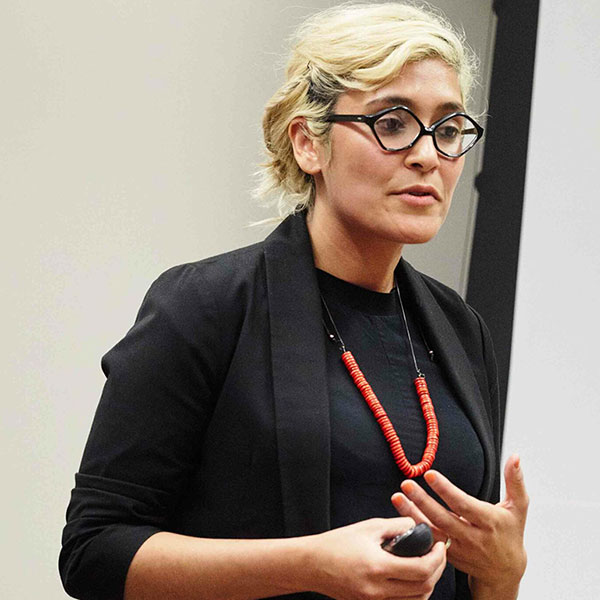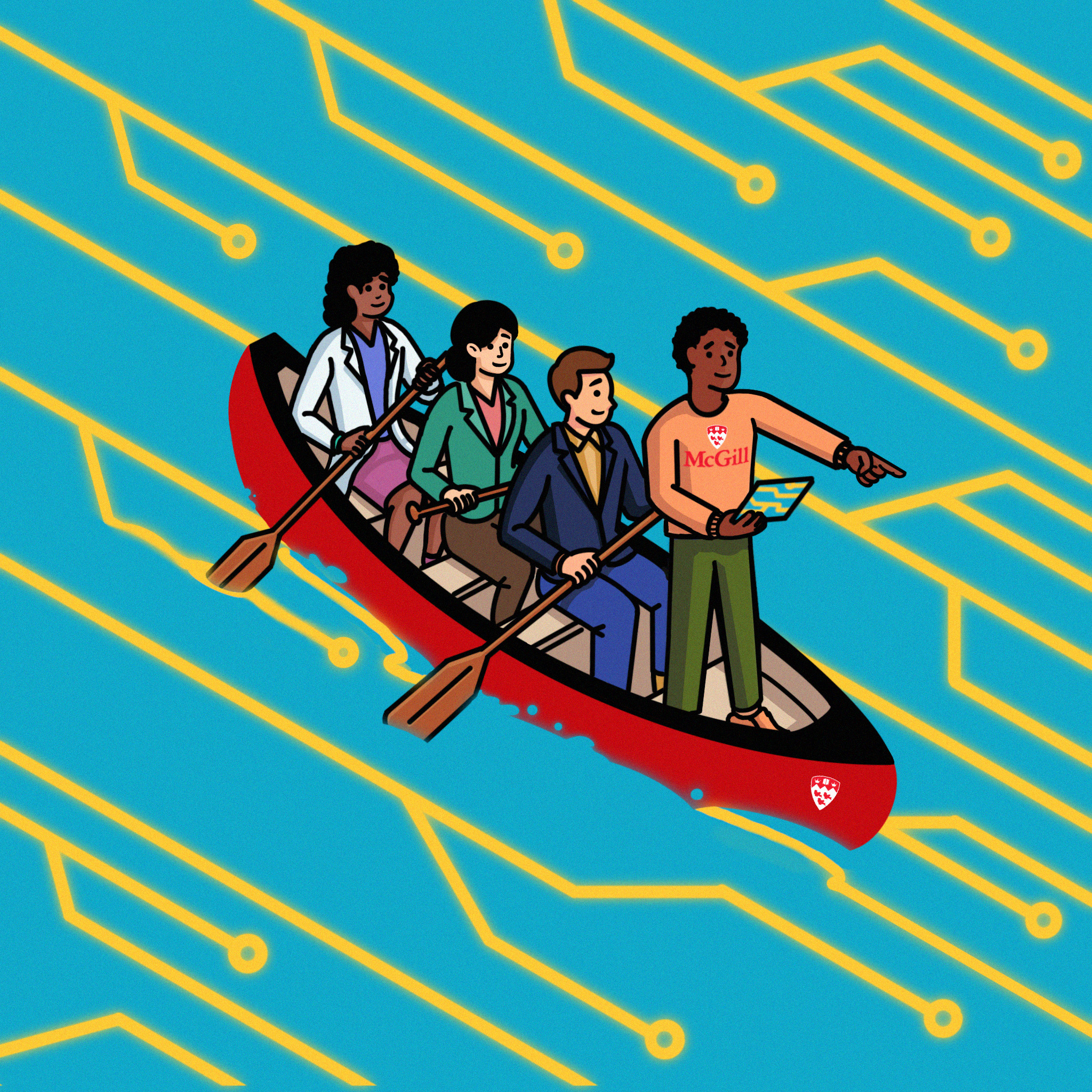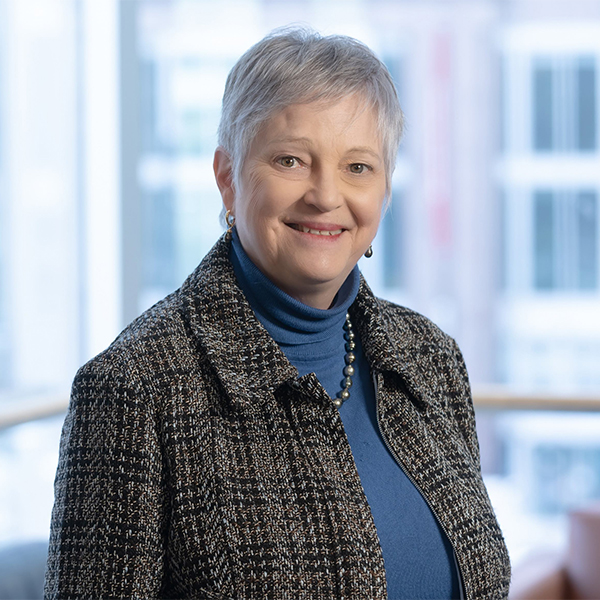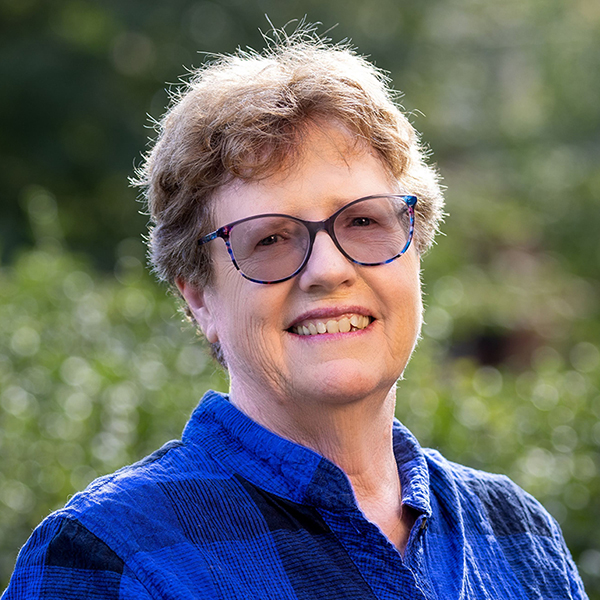Their startup ideas range from a software service to help diagnose concussions to a multiple-choice quiz creator.
In five-minute pitches this fall, startup teams from the McGill X-1 Accelerator Program have been making their entrepreneurial case to McGill alumni and potential investors in Montreal, Boston and San Francisco.
Presented by the McGill Dobson Centre for Entrepreneurship, McGill Demo Days showcase startups from the 10-week summer program, giving them a chance to network and potentially attract investors.
The aim of the McGill X-1 Accelerator Program is to help advance promising startups toward investment readiness and launch.
More pitches await with Demo Day events scheduled for Toronto (Oct. 3) and New York (Oct. 10) with McGill’s alumni community.
They tell teams not to cram their startup’s entire story into the brief pitch, says Renjie Butalid, associate director at the McGill Dobson Centre for Entrepreneurship.
“What they want to do with the five minutes is generate enough interest from the people in the audience that you have five, six, seven, 10 people coming up to you afterward to learn more,” Butalid says.
That means a compelling pitch that tackles key points: that the problem they’re addressing is a big one with a large market to go after, that their solution has the highest chance of succeeding, and that their team can deliver.
One of the teams taking part in all the Demo Day events is Kiffin, a specialty food business in Montreal operated by Natasha Alani, MBA’17, and her husband Aaron Fetherson, a former head chef of a Michelin star restaurant in San Francisco. Their customers include McKinsey, Microsoft, Desjardins, and C2 International.
“I wouldn’t say I feel nervous,” Alani said in early September about pitching at Demo Days, using the term “heavy responsibility” instead.
“I’m very aware of what a wonderful opportunity it is.”
Kiffin prepares food for companies, but it’s very different from catering, she says, “because it’s restaurant quality” and the operation is designed to be more about the experience the customer feels.
“So what we want to do is bring restaurants into spaces,” says Alani, a San Francisco native.
The trend of offering food to your employees is becoming kind of standard, she notes.
“We want to be the most ethical, healthy, chef-driven experience, like a farm-to-company experience, for a company that understands the importance of having food at work.”
The eight startup teams in this summer’s McGill X-1 Accelerator Program include students, but also professors. For example, Saccade Analytics is composed of two professors and three post-doctoral students, Butalid says.
Saccade Analytics is developing software that analyzes eye and head movements to help clinicians diagnose dizziness, concussions – and potentially 200 neurological diseases linked to those movements.
This is the second year the Dobson Centre has taken Demo Days on the road after a positive experience in Boston and San Francisco last year. Part of the success, Butalid says, was that they also organized side trips to different venture capitalists, organizations and companies where startup teams got to meet McGill graduates who are successful entrepreneurs, such as a visit with Daniel Saks, BA’07, co-founder and co-CEO of AppDirect, at the tech company’s San Francisco offices.
They spent quite a bit of time with Saks, asking questions about how he built his company, acquired his first customer and the challenges that he and his co-founder faced building it, Butalid says.
Similar educational and networking opportunities are part of this year’s Demo Days .
Over the summer, angel investors approached a number of the excellent startups from the McGill X-1 Accelerator Program, Butalid says.
“What we told them was, look, if they’re genuinely interested in investing in your company they’ll still be interested after you do Demo Days where you’ll be able to almost pick and choose which investors that you would want to work with. There’s an art and science to raising investment funding, but also finding the right investor for your company.”
The Dobson Centre’s approach with its entrepreneurial programs, he adds, is to train founders to ask the right questions “because there’s a lot that they don’t know when it comes to entrepreneurship, when it comes to building their team, raising financing and so on.”
The Dobson Centre also runs the Dobson Cup, its flagship startup competition, and its precursor, the McGill Lean Startup Program for teams that have an idea, but don’t necessarily know how to turn it into a business.
Each week during the intensive X-1 Accelerator Program, industry experts, key mentors and speakers are brought in to stage workshops on more general topics such as public speaking.
Because the latest cohort featured more later-stage startups, Butalid says they also had industry specific mentors come in to spend a bit of time with the teams “to really dive in and to help the founders through some of the issues that they might have been facing that particular week.”



